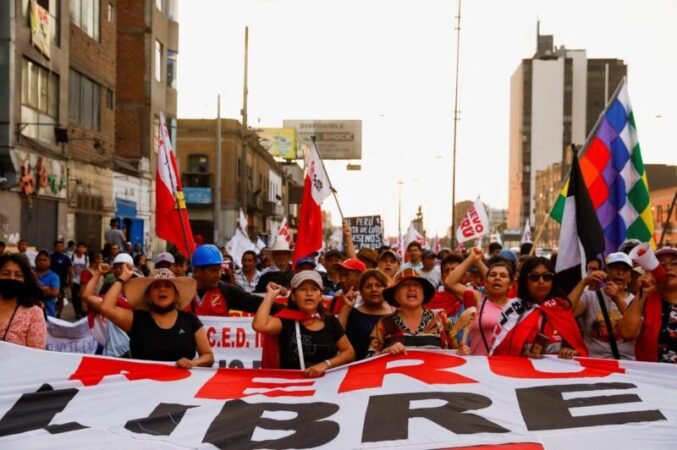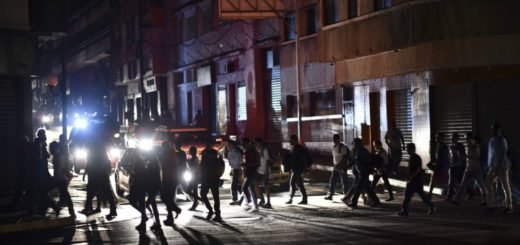Political Crisis and Challenges in Peru

On 7th December 2022, former President of Peru, Pedro Castillo was impeached by the Peruvian Congress and former Vice-President, Dina Boluarte was sworn in. This led to a political crisis in the Andean nation adding to the economic troubles which it is already facing. The impeachment proceedings were initiated on 1st of December against him on the grounds of ‘corruption and permanent moral disability’. In response, the former President tried to dissolve the Congress, in order to install an ‘exceptional emergency government’ and declared a nationwide curfew. The Congress nevertheless carried out the impeachment proceedings which were concluded with 101 votes in favour, 6 against while 10 abstained. Pedro Castillo was arrested after the conclusion of the proceedings on charges of rebellion, conspiracy and for breaking the constitutional order.
The political developments led to protests by supporters of Pedro Castillo in various parts of the country who viewed it as an attempt by Congress, mainly consisting of right-wing members to subvert a President of indigenous origin. Clashes were reported in various parts of Peru requiring the police and security forces to maintain law and order. Protesters demanded the resignation of President Dina Boluarte, dissolution of the Congress and fresh elections. The Peruvian government on 14th December declared a state of emergency and instructed the security forces to restore order. President Boluarte appealed for calm and promised to look out for solutions to the crisis.
The Judiciary meanwhile extended the preventive detention of Pedro Castillo for 18 months with the purpose of initiating investigations. He refused to accept the result of the impeachment, vowing to complete his term while accusing his opponents of maltreatment.
The situation is tense and it has invited reactions from across the region, highlighting an ideological divide in Latin America. The paper will highlight the current political crisis and its impact on Peru as well the reaction from regional actors.

Decoding the Political Crisis in Peru
The roots of the crisis can be traced to political disagreements that occur frequently between Congress and the President which has become pronounced in the past 5 years. Although Peru is no stranger to political instability, having witnessed periods of crises during the administration of Fujimori, the current issue displays the lack of political cohesion within the government. Peru has strict separation of powers between the legislature and the executive and such disagreements have led to frequent impasses. it also has 13 different voting blocs which leads to vote fragmentation on critical issues. it is noteworthy that between 2016 till 2022, Peru witnessed 6 Presidents with none of them being able to complete a single term. And during this period 7 impeachment attempts were undertaken which highlights the constitutional fragility in the country. On similar lines, there were issues between Pedro Castillo and the Congress as he was unable to garner support from the Congress on many occasions. It led to difficulties in legislation and administration. Pedro Castillo, who rose through the political ranks from a simple Trade Union leader lacked administrative experience, although his popularity among the indigenous communities is high. He won a tightly contested election in 2021 and faced two previous impeachment attempts in December 2021 and in March 2022. Although Castillo tried to work with the Congress, he faced multiple accusations of corruption and political mismanagement. The current crisis hence exposes the fractures not only within the political mechanism in Peru, but also the faultline between the political elite and the indigenous communities, many which saw hope in Castillo.
Aftermath and Impact of the Impeachment Proceedings
Supporters of Pedro Castillo refused to accept the result of the impeachment and carried out protests in various parts of Peru, especially in the capital city Lima and in other regions such as Arequipa, Cusco, Tacna, Huancayo, Huancavelica, Andahuaylas, Apurimac and Puno. So far more than 50 deaths have been recorded in addition to numerous injuries. The Ombudsman office in Peru said that investigations pertaining to the deaths will take place following the dure procedure as established by law. While protesters engaged in acts of vandalism, the security forces are also accused of using excessive force. Due to the clashes Education Minister Patricia Correa and Culture Minister Jair Perez tendered their resignation expressing remorse over the deaths of people. There is certainly some financial impact of the protests with supply lines disrupted and inability for business to function normally. The rural regions, especially in the South of Peru have turned out to be hotspots for protest.
President Boluarte address the nation, expressing her unwillingness to resign, instead she appealed to Congress to consider fresh elections. The Congress meanwhile faces the lowest approval ratings from the people who are clearly dissatisfied with the functioning of the legislative body. The Congress has approved a proposal that may allow elections to be held in April 2024 although a lot remains to be seen regarding the proposal. Members of the Congress are not too keen on early elections which may again lead to a deadlock between the President and the Congress. What has turned out to be challenging is to maintain cohesion not only within the cabinet, but to also work in coordination with Congress.

Reactions from the region
The political crisis invited mixed reactions within the region. The United States and Panama welcomed the appointment of President Boluarte while Brazil looked forward to working with her.
In contrast, Mexico, Bolivia, Argentina and Colombia expressed concerns over the impeachment of Pedro Castillo through a joint statement issued on 12th of December 2022. The declaration acknowledged that Pedro Castillo was “the victim of undemocratic harassment” and urged the Peruvian authorities to respect his human rights and guarantee judicial protection. Honduras on similar lines condemned the turn of events that led to the impeachment, resulting in erosion of democratic values, expressing concern regarding the human rights of the impeached President.
Notably, diplomatic relations between Peru and Mexico are overshadowed due to the latter’s support for Pedro Castillo which did not go down well with the present Peruvian government. Mexico awarded Pedro Castillo’s family with political asylum. Peru as dissatisfied with Mexico’s position related to the turn of events and declared its ambassador Pablo Monroy as Persona Non-Grate issuing him a 72-hour window to leave Peruvian territory. additionally, Peruvian Prime Minister Alberto Otárola asked President Obrador of Mexico to refrain from referring to the political crisis citing undue interference in the internal matters of the country. The Mexican President however reiterated that diplomatic relations between both the countries would continue as usual.
Conclusion
President Dina Boluarte has inherited the same set of political divisions and issues as her predecessor. She requires support from a divided Congress in order to stabilise the situation and bring peace in the country in addition to conducting fresh elections. The crisis has also highlighted the division within Peru between the indigenous communities and the political elite which is oblivious to their demands. Also, the schism between the left leaning governments in Latin America and their right-wing counterparts has become more pronounced. It is imperative that peace and order is restored and dialogues are held with stakeholders within Peru to arrive at political stability.


















